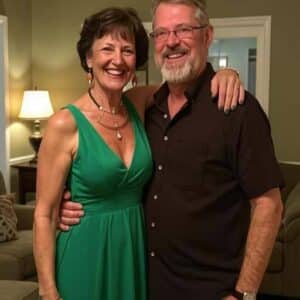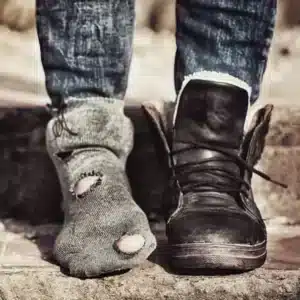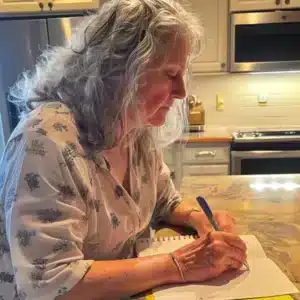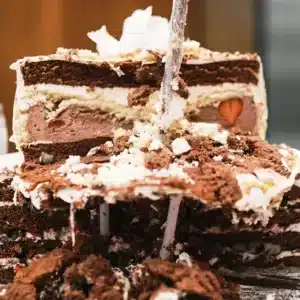She told me over eggplant parm that she was staying child-free. I mulled it over, slept badly, and the next week I changed my will. Most of it went to my nephew—good kid, two little ones, a mortgage, the whole package. When my daughter found out, she didn’t argue. She set her fork down, looked at me across the red-and-white tablecloth we’ve been sharing since she had crayons in her pocket, and said, “Thank you. I made peace with that decision a long time ago.”
I blinked. I’d braced for a storm. What I got was gratitude.
“You’re not mad?” I asked, more tentative than I meant to sound.
“Why would I be?” she said, easy as a shrug. “You’re acting on your values, Dad. I’m acting on mine.”
Ruth is thirty-four now, sharper than a set of new knives, running a marketing agency she built from a laptop at our kitchen table. I’m proud of her in that deep, fatherly way that never quite finds the right words. But underneath the pride I’d kept a quiet assumption: that one day, she’d want what I wanted at her age—marriage, a couple of kids, a predictable holiday calendar. I thought time would bend her toward it.
That night I lay awake hearing her voice on a loop. Calm. Certain. Not a trace of resentment. It rattled me more than anger would have.
The next morning my nephew called. He was effusive—talked about tuition, a safer car, a place with a yard. I hung up happy for him and hollowed out at the same time. Somewhere in there was a truth I didn’t like looking at: I’d tied “legacy” to diapers and school plays, and in doing so, I’d narrowed my daughter.
We kept meeting for coffee and dinners. Nothing exploded. But I noticed Ruth editing herself. She’d pause before telling me about a two-week work trip. She started skipping the parts of her life that might clang against my expectations. One afternoon she invited me to her office.
Plants everywhere. Glass walls. A dozen young people typing, laughing, building. She walked me to a conference room where the whiteboard had transformed into a map of her next five years.
“I’m opening two more branches,” she said, pointing—Austin and Portland in bright ink. “This is where I want to be by forty.”
“Looks… ambitious,” I said, which was my clumsy way of saying impressive.
“It’s my legacy,” she said, softer.
The word landed and stayed. I watched her with her team—how she listened, how she pushed without bulldozing, how she treated wins like communal property. She was building something that outlived campaigns.
A week later, she knocked on my door with red eyes and a bottle of whiskey. We sat on the couch like we used to, legs tucked under, a game murmuring on the TV no one watched. Her friend from college had died suddenly. Thirty-five. No warning. We held the news between us for a long time.
When she finally spoke, her voice caught. “When I think about the will,” she said, “I don’t think about money. I think about how you see me.”
I stared into my glass. “Ruth…”
“I’m not angry,” she said, palm up, stopping the apology I was gearing up to fumble. “I just realized—everyone wants to feel like their life counts for something.”
“It does,” I said, and I meant it more fiercely than any sentence I’d said to her in years.
“Then maybe that’s all we ever owe each other,” she said. “Not approval. Recognition.”
After she left, the house was loud with quiet. The next morning I called my lawyer.
“I need to make changes.”
“Again?” he said, surprised but game.
“Again,” I said. “This time I know why.”
I didn’t cut my nephew out; he still had a piece. But I rewrote the rest with a steadier hand. I included a letter to be read with the will—something human to sit next to the legalese. I told Ruth what I should’ve said sooner: that I saw her fully; that meaning wears more than one face; that I was proud.
I didn’t tell her right away. Instead, I asked if she wanted to drive up to the lake like we used to. We fished badly, burned marshmallows on purpose, and played cards until our fingers smelled like smoke. As the sun dropped behind the pines, I handed her the envelope.
She read it quietly, the paper bright against the dark. When she finished, she leaned her head on my shoulder the way she used to when she fell asleep in the backseat after Little League.
“Thank you,” she said. “Not for the money. For seeing me.”
For the first time in a long time, I felt like I’d put something right where it belonged.
Life kept moving in its sideways way. A few months later, Ruth called. “I want you to meet someone,” she said, voice light in a way I hadn’t heard in years. “Her name’s Mika.”
Mika had kind eyes and laughed with her whole face. Watching the two of them, puzzle pieces clicked that I hadn’t realized were floating. Ruth’s choices made a wider kind of sense. One evening as we cleared plates, Mika touched my arm.
“Thank you for supporting her,” she said.
“I got there late,” I admitted. “But I got there.”
They married in our backyard a year later under strings of lights that made everything look like hope. Ruth wore blue and kicked her shoes off before the second song. I cried into a napkin and blamed the smoke from the grill.
Three years after the dinner that started all this, I walked into Ruth and Mika’s place for Sunday brunch and tripped over a plush giraffe. Toys everywhere. Ruth lifted a tiny girl into her arms, eyes bright with a kind of joy that defies words.
“Dad,” she said, “this is Ada. We adopted her last month.”
I laughed and cried at once, ridiculous and unashamed. Ada’s fingers closed around mine like she’d been waiting. I looked at my daughter and understood something I thought I already knew: you can love the life you chose and still choose again when the right door opens. Staying child-free wasn’t a rebellion. It was a truth at the time. Ada was another truth that arrived later.
The will turned out not to be about the distribution of money. It was a mirror I didn’t like at first. Changing it didn’t just alter paperwork; it widened me. It taught me that legacy is sometimes a business that nurtures people into themselves, sometimes a marriage that steadies two lives, sometimes a nap taken on your dad’s shoulder by a girl named Ada who arrived in her own perfect time.
If you’re measuring your meaning against someone else’s yardstick, set it down. Ask instead who you’ve lifted, what you’ve built, which doors you’ve opened. Ruth taught me that. Ada reminded me. And I’m still learning, which feels like its own kind of legacy.





